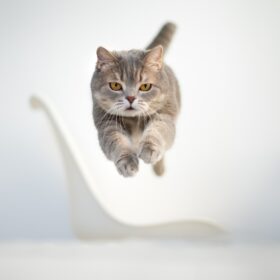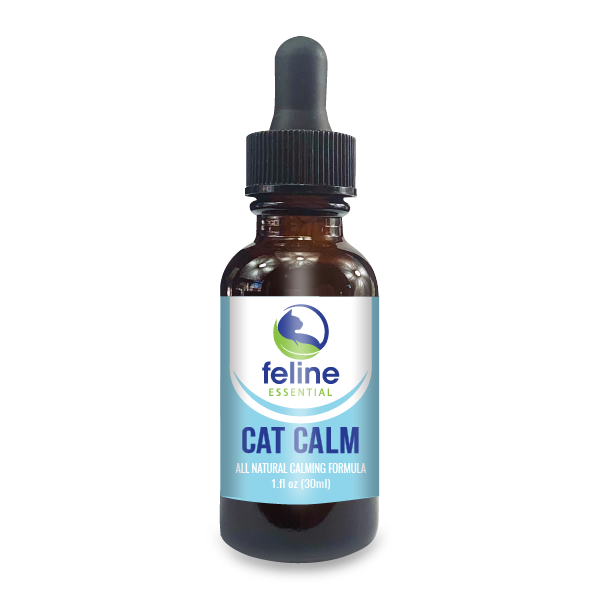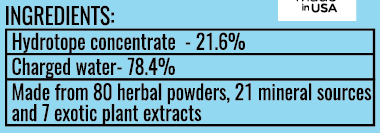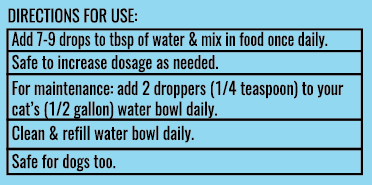Signs, Causes & How To Help
Hyperactivity in cats is a common issue that many cat owners experience. It can be frustrating for both the cat and the cat parent, as the cat may become destructive or disruptive. In this guide, we discuss the signs, causes, and natural ways to help your hyperactive cat.
Signs of Hyperactivity in Cats
Hyperactivity in cats can present itself in many different ways. Some common signs include:
- Constant movement and restlessness
- Excessive meowing or vocalization
- Destructive behavior, such as scratching furniture or knocking things over
- Aggression towards people or other pets
- Inability to settle down or relax
- Excessive grooming
- Obsessive-compulsive behaviors, such as tail chasing or light chasing
If your cat is displaying any of these signs, it is important to address the issue to ensure their well-being and happiness.
Causes of Hyperactivity in Cats
There are several potential causes of hyperactivity in cats, including:
- Lack of stimulation: Cats are natural hunters and need mental and physical stimulation to be happy and healthy. If your cat is bored or not getting enough exercise, they may become hyperactive as a way to burn off excess energy.
- Health issues: Some health issues, such as hyperthyroidism or feline hyperesthesia can cause hyperactivity in cats. If you notice any other unusual behaviors or symptoms in your cat, it is important to take them to a vet for a check-up.
- Stress: Cats can become hyperactive as a response to stress or anxiety. This could be caused by a change in their environment, such as moving to a new house or the introduction of a new pet or person.
- Diet: A diet that is high in carbohydrates or lacks essential nutrients can also contribute to hyperactivity in cats.
Natural Ways to Help Your Hyperactive Cat
There are several natural ways to help your hyperactive cat, including:
Provide Mental and Physical Stimulation
One of the best ways to help your hyperactive cat is to provide them with mental and physical stimulation. This could include:
- Puzzle toys and treat dispensers
- Playtime with interactive toys, such as wand toys or laser pointers
- Cat trees and climbing posts
- Access to windows or outdoor areas
- Streaming Cat TV to your television
- Place a bird feeder outside your window
Providing your cat with plenty of stimulation will help to keep them entertained and prevent them from becoming bored and hyperactive.
Establish a Routine
Cats thrive on routine, so establishing a daily routine for your cat can help to reduce their hyperactivity. This could include:
- Feeding your cat at the same time each day
- Setting aside time for play and exercise
- Scooping the litter box at the same time each day
- Establishing a bedtime routine
By establishing a routine, your cat will feel more secure and less likely to become hyperactive.
Consider a Species Appropriate Diet
A balanced, moisture rich diet is essential for a healthy and happy cat. Ensure that your cat’s diet includes high-quality protein and essential nutrients. Avoid feeding your cat foods that are high in carbohydrates like kibble, as these can contribute to hyperactivity.
Consider Natural Supplements
There are several natural supplements that can help to reduce hyperactivity in cats. These include:
- CBD oil: CBD oil can help to calm your cat and reduce their anxiety levels.
- Herbal calming formulas: Calming formulas like Feline Essential Cat Calm can help take the edge off and reduce stress.
- Chamomile: Chamomile has natural calming properties and can help to reduce hyperactivity in cats.
- Valerian: Valerian is a natural sedative that can help to calm your cat.
Conclusion
Hyperactivity in cats can be a frustrating issue for both the cat and the cat parent. By providing your cat with mental and physical stimulation, establishing a routine, and ensuring that they have a healthy, species appropriate diet, you can help to reduce their hyperactivity and make them happier and healthier.






